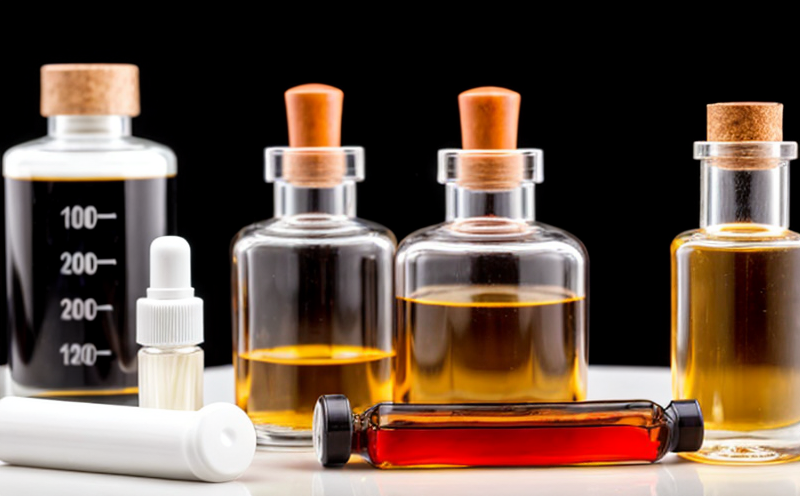Bottle Packaging Residue Testing
Compliance with pharmaceutical industry standards is paramount to ensuring product safety and efficacy. Bottle packaging residue testing plays a critical role in this regard, especially for products that are stored or dispensed in containers. This service ensures that any residues from the bottle’s inner lining materials do not contaminate the medication, thereby protecting patients from potential health risks.
Our comprehensive testing process involves rigorous sample preparation and analysis using advanced instrumentation to detect even trace amounts of residual substances. This method helps ensure that the packaging does not interfere with the integrity or quality of the product. By adhering strictly to international standards, we provide reliable and accurate results that meet regulatory requirements.
The testing scope includes a variety of inner lining materials commonly used in pharmaceutical bottles such as polyethylene terephthalate (PET), high-density polyethylene (HDPE), and other plastics. We also analyze the potential for leaching of metal components, which could include tin or iron from soldering or sealing processes.
Our team of experts utilizes state-of-the-art analytical techniques, including gas chromatography-mass spectrometry (GC-MS) and inductively coupled plasma mass spectrometry (ICP-MS), to identify and quantify any residues. This approach ensures that we can detect even the smallest amounts of contaminants, ensuring product safety.
The importance of this testing cannot be overstated. Patients who rely on medications must trust that these products are free from harmful substances. By conducting thorough bottle packaging residue testing, we help pharmaceutical companies maintain their commitment to quality and regulatory compliance.
In addition to safeguarding patient health, this service also supports the overall supply chain by ensuring that packaging materials meet stringent quality standards. This helps reduce the risk of product recalls and associated costs while enhancing brand reputation.
Applied Standards
| Standard | Description |
|---|---|
| ISO 17853-1:2019 | Determination of heavy metals in plastic materials and articles — Part 1: General principles. |
| ASTM D4664-18 | Standard test method for quantifying leachable substances from containers used in the storage of liquid pharmaceuticals. |
| EN 30215:2017 | Determination of lead, cadmium, and mercury in plastics by atomic absorption spectroscopy (AAS). |
Customer Impact and Satisfaction
The results of our bottle packaging residue testing are critical for pharmaceutical companies, as they provide assurance that their products meet the highest standards of quality and safety. This service not only helps in meeting regulatory requirements but also enhances customer trust.
By identifying any potential contaminants early on, we enable our clients to take corrective actions before products reach the market. This proactive approach reduces the likelihood of product recalls and associated costs, thereby protecting both brand reputation and consumer confidence.
We have a strong track record of delivering accurate and reliable results that are compliant with international standards. Our customers consistently report high levels of satisfaction with our services, citing the thoroughness and precision of our testing processes.
Competitive Advantage and Market Impact
- Ensures compliance with stringent regulatory requirements.
- Reduces the risk of product recalls and associated costs.
- Enhances brand reputation by providing reliable quality assurance.
- Promotes customer trust through transparent testing processes.
- Aids in maintaining consistent product quality across different batches.





